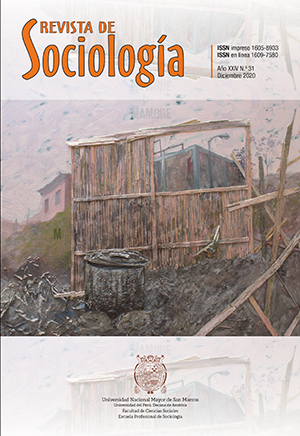Policy on urban leasing in contemporary Peru
DOI:
https://doi.org/10.15381/rsoc.v0i31.19277Keywords:
Public Policies, Urban Leasing, Contractual Interventionism, Peruvian Governments, Urban History, Urbanization Processes, Housing, Access to Popular HousingAbstract
The article analyzes the urban leasing policy in contemporary Peru and seeks to explain the origin and permanence of contractual interventionism in urban leasing until the 21st century. All political periods are analyzed, from the governments of Augusto Leguía (1919-1930) to the governments of the last democratic transition (2000-2020) and it seeks to show very synthetically the multiple determinations of contractual interventionism. The analysis of public policy on urban leasing is developed within the framework of the contemporary Peruvian urbanization process, defined by the development of the so-called neighborhood as the way through which the urban popular sectors accessed housing from the decade from the fifties of the 20th century and how they were incorporated and integrated into the city; and the parallel weakening of the identification between slum, rental and housing of the urban popular sectors.
Downloads
Published
Issue
Section
License
Copyright (c) 2020 Johnny Zas Friz Burga

This work is licensed under a Creative Commons Attribution-NonCommercial-ShareAlike 4.0 International License.
AUTHORS RETAIN THEIR RIGHTS:
a. Authors retain their trade mark rights and patent, and also on any process or procedure described in the article.
b. Authors retain their right to share, copy, distribute, perform and publicly communicate their article (eg, to place their article in an institutional repository or publish it in a book), with an acknowledgment of its initial publication in the Revista Sociología.
c. Authors retain theirs right to make a subsequent publication of their work, to use the article or any part thereof (eg a compilation of his papers, lecture notes, thesis, or a book), always indicating its initial publication in the Revista Sociología (the originator of the work, journal, volume, number and date).
























